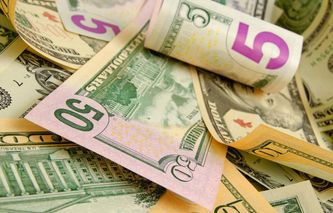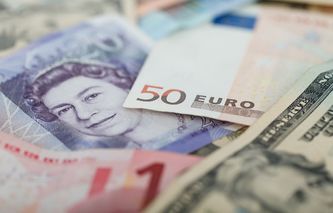With the cost of living rising, every penny counts. This means that getting money back on your purchases can make a world of difference. Plenty of bank accounts offer cashback rewards, but are they really worth it once you take into account the fees and limitations?
To answer this question, we combed through the small print of dozens of reward bank accounts. The result is a shortlist of the best options, reviews of their features, and a look at how they compare to cashback rewards.
Revolut offers some of the highest cashback rates on certain types of spending. But we've also evaluated the best cashback account offers for specific types of payments such as household bills or overseas spending.
Discover which reward bank account will help you save the most while you spend.
Top Cashback Accounts - Our Recommendation
| Name | Score | Visit | Disclaimer | |
|---|---|---|---|---|
 | 8.5 | Visitrevolut.com | ||
 | 8.5 | Visitstarlingbank.com | ||
 | 7.5 | Visitsantander.co.uk |
The Best Bank Accounts With Cashback Reviewed
If you’re interested in one of the cashback rewards bank accounts listed above but need more information before joining, then we have reviews of each below.
Best cashback accounts at a glance
Best overall: Revolut
Best for the marketplace: Starling
Best for cashback on domestic bills: Santander
Best for customer support: Chase
Best for overseas use: Virgin Money
Best for gift cards: NatWest
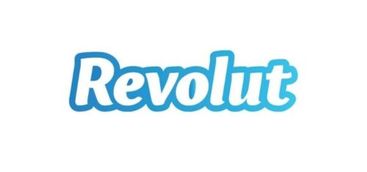
Much like other online-only banks, Revolut supports an easy account opening process with no hard credit checks (as there are no overdraft facilities offered) and offers competitive rates when spending and sending money abroad. All these combined make it an excellent banking choice for those with poor credit ratings, expats, or international students living in the UK.
You can earn up to 30% when you visit London pubs and restaurants, and 10% cashback when using Revolut cards at select retail stores. What's more, the Revolut Stays & Experiences feature means that customers can receive up to 10% cashback on holiday accommodation and events when they book through Revolut.
Those who pay extra for a Metal or Ultra plan even get cashback of 0.1% or 1% on all their transactions. Meanwhile, Revolut Pro users receive cashback of up to 1.2% whenever they use their Pro card. There’s also a regularly run referral scheme – when an existing user invites a friend, they can both receive a monetary reward in their account.
Pros
- Cashback on holiday accommodation and experiences
- No credit checks
- No additional charges for sending & spending money abroad
Cons
- You can’t deposit cash or cheques
- Free withdrawals are limited to £200 per month
- You need a paid or Pro account to get cashback on all transactions
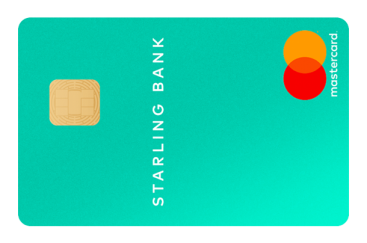
Starling doesn’t have cashback offerings itself per se but allows linking your account to Tail, a specialised cashback application. The app offers cashback on a wide range of top retailers, stretching from B&Q to BT to Ocado. The cashback offers are attractive—sometimes above 10%—but they can also be time limited.
You can scroll through all the offers or filter by what's on offer near you. The rewards will be paid directly into your Starling account, and it's easy to track how much you've earned.
Cashback & loyalty providers only make a portion of Starling’s marketplace integrations, though. Users can choose from a variety of providers servicing mortgage, insurance, investment, and retirement planning needs.
Pros
- You can use the settle-up feature to split joint bills
- Overdraft facilities
- Free overseas spending
Cons
- Daily withdrawal limit of £300
- Some cashback offers have limitations
- Cashback is only available at select retailers through a third-party service
There are some great cashback rewards available to users of the Santander Edge current account. You can receive 1% cashback on both household bills and supermarket or travel costs (each capped at £10 a month).
On top of this, customers can use the personalised rewards service Santander Boosts to receive cashback, vouchers, offers, and prize draws. You'll be sent tailored offers based on your interests, from fashion and electronics to food and travel.
Other benefits of the Santander Edge current account include free debit card transactions abroad and an optional savings account that pays interest of 7% AER. To maintain this account, you'll need to pay a monthly £3 fee, pay at least £500 into the account each month, and have 2 active Direct Debits.
Pros
- Cashback on household bills and shopping
- Personalised rewards service with Santander Boosts
- Optional savings account with 7% AER interest
Cons
- You pay monthly account fees
- It has a high overdraft interest rate
- Cashback on bills and essentials is capped
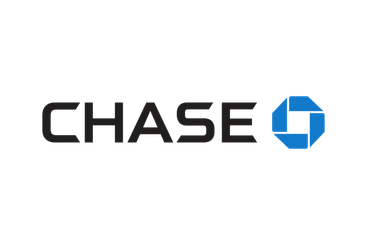
Banks are not known for their customer service – but that’s exactly where Chase excels. Available through every possible channel (text, email, FAQ, and phone line), the bank also includes accessible support options for those with hearing and speech difficulties.
Its cashback offers are just as good – you get 1% cashback on a variety of spending, stretching from groceries to holiday purchases, capped at £15 a month. Chase also pays interest of 1% AER on the money in your current account.
Much like its other digital peers, Chase offers robust spending management features and the much-appreciated round-up feature. Every purchase you make rounds up to the nearest pound and every penny is transferred to your savings – where you can earn 5% AER in interest.
Pros
- In-app customer support is available 24/7.
- There are no fees or monthly account charges.
- Round ups feature generates 5% interest on savings.
- You’ll get 1% cashback on various purchases.
Cons
- The cashback and interest rewards are for 12 months.
- It’s only available online.
- You can’t make cash or cheque deposits.
- Overdrafts aren’t available yet.
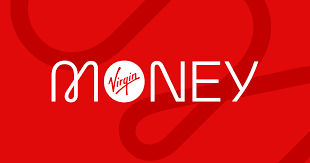
Virgin Money’s Club M Account is an excellent choice for overseas use – it’s free to use whilst abroad, but it also packs family-wide travel insurance benefits, as well as attractive cashback offers. The account costs £12.50 per month to maintain, but with cashback available from top retailers, you may be able to offset the maintenance fee.
The bank account also comes with breakdown coverage whilst in the UK, as well as insurance for broken gadgets, meaning that your phone, laptop, and cameras are covered, wherever in the world.
You can also receive 2.02% interest on your balances up to £1,000, plus interest of 3.55% on any savings balances up to £25,000 that you move into a Club M Saver.
Pros
- It gives you insurance on gadgets, breakdown and international travels
- You can use a debit card for free abroad.
- You’ll receive interest on your balance.
- Optional linked savings account available.
Cons
- There are monthly fees.
- Cashback offers may be time limited.
- Interest is only paid on balances of up to £1,000.
Existing NatWest customers can sign up for its MyRewards scheme, which includes regular cashback, rewards for logging into the banking app (only £1 per month, but we appreciate the sentiment), and £4 a month in rewards if you pay at least two Direct Debits, and 1% to 15% when you use your debit card at partnered retailers.
You'll be able to transfer your rewards to your current account, trade them for e-gift cards, or donate them to charity. It costs £2 a month for the standard Reward account, but for a higher monthly fee you can receive additional benefits such as phone and travel insurance.
Pros
- It comes with perks such as European travel insurance.
- Rewards just for logging in and paying direct debits.
- Useful features for saving and budgeting.
Cons
- You pay a monthly fee of at least £2.
- Insurance is only available on the more expensive plans.
- Limited number of partner retailers that offer cashback.
How We Rate & Review The Best Cashback Accounts
While choosing the best cashback accounts, we considered a series of factors to ensure we’re suggesting safe banking options that provide everything customers need. These include;
Regulation – We ensure that all of the institutions we include are authorised by the Financial Conduct Authority (FCA) in some capacity. The licensed banks (the likes of Santander, Starling, and Virgin) have their funds protected by the Financial Services Compensation Scheme (FSCS), while e-money institutions (such as Revolut) are obliged to safeguard client funds by separating them from company assets as per FCA regulations.
Account perks – Of course, perks are a crucial aspect of cashback accounts. We combed through dozens of reward and packaged accounts and reams of data to identify the best offers available right now, catering to a variety of needs.
Extra features – Online banking today is way more than just performing basic tasks like sending and receiving payments. Instead, banking applications can be loyal companions to our personal finance planning – so naturally, we considered the extra app features like budgeting, savings, investing, and insurance.
Fees and charges – Cashback accounts usually charge nominal monthly fees. Whilst shortlisting candidates, we considered the monthly charges as well as fees for overdrafts, currency exchange, and ATM withdrawals.
How Does Cashback Work?
Cashback refers to the money you receive back on certain types of purchases – it usually applies to purchases you make through retailers that are partnered with your bank. That being said, we increasingly see cashback offers on household bills, such as your gas and electricity bill or council tax.
These rewards are usually deposited to qualified current accounts at the end of the month and tend to be based on a percentage of your spending (usually between 1% to 10%). So, for example, if you spend £100 and are able to get 1% cashback, you’ll receive £1 from your purchase.
The catch is that cashback offers are usually capped at quite nominal amounts, ranging from £3 to £10 per month. Some, like Santander, may cap cashback offers as per each type of cashback, which can increase the amount you’ll ultimately get.
Besides everyday spending, some banks may also offer a lump sum of cashback as an incentive to switch current accounts, with a majority of them requiring using the Current Account Switch Service. It’s worth noting that a lot of current accounts offer cashback instead of paying interest on balances, although it’s possible to find some that do both – Santander Edge Up, for example.
Do you have to do anything to get cashback?
Some banks, like NatWest or Lloyds, may require you to activate cashback deals on your current account by subscribing to a reward scheme, and may charge a subscription fee. In some cases, most notably with online banks, you don’t have to do anything extra – your cashback deals will appear on the dashboard of your banking app, you can just claim them there.
Are current account rewards taxable?
HM Revenue & Customs (HMRC) deems some rewards taxable, some not. This is largely based on how HMRC categorises rewards for tax purposes. There are three main categories:
Annual payments: Taxable, tax deducted at source at the basic rate. It's only considered an annual payment if it continues for more than a year and you don’t pay a fee for holding the account.
Miscellaneous income: Taxable, but paid without tax deducted.
Neither annual payments nor miscellaneous income: not taxable.
The cashback you get on household bills are discounts on services by nature, so they are not considered income – meaning that there’s no tax to pay.
Higher rate taxpayers (those earning more than £50,270) and additional rate taxpayers (those earning more than £125,140) may have to pay additional amounts above the tax deducted at source if they receive rewards with the basic tax rate deducted.
If you are a non-taxpayer, you can claim any tax deducted by using the R40 form or on your self-assessment tax return.
Common charges and minimum deposit requirements
It’s quite customary for cashback accounts to charge a monthly fee – more often than not, these amounts hover around £2 or £4. Some, such as the likes of Santander or NatWest, may require you to deposit above a certain amount to your account or set up a number of direct debits in order to maintain your account. While the minimum deposit requirement may be out of reach for some, monthly fees are usually offset by the cashback you receive.
Best cashback accounts – a comparison of costs
Cashback cap | Monthly fee | Minimum funding/month | |
|---|---|---|---|
Revolut | €300 | Standard – free, Plus – £3.99, Premium – £7.99, Metal – £14.99 | ❌ |
Chase | £15 | ❌ | £500 |
Starling | ❌ | ❌ | ❌ |
Virgin Money | ❌ | £12.50 | ❌ |
Santander | £20 (£10 each on bills & essentials) | £3 | £500 |
NatWest | ❌ | £2 | £1,250 |
Can I get a joint cashback account?
It's at the banks’ discretion. They may allow adding two or more people onto the account with cashback rewards, or not. Two people using the same account may provide more opportunities to earn cashback and other rewards – but it won’t change the monthly caps on how much you can earn.
Also, if the salaries of all account holders are paid into a joint account, you might want to consider an option that pays interest on your balance. Cashback accounts rarely pay interest, and the ones that do usually have lower rates. If that’s the case, compare the rates offered by cashback accounts and other joint bank accounts.
Check your eligibility for a cashback current account
The eligibility criteria is largely the same as any current account, following similar age, residency, and income requirements. Here’s a rundown:
Proof of identity – You can submit your driver’s license or a copy of your passport.
Proof of address – Most banks require you to be a UK resident, although there are exceptions. Accepted documents include utility bills or council tax statements.
Proof of income – Banks may not impose income requirements for all of their products, but may do so for some. Accepted documents include payslips, tax returns, and bank statements.
How to Choose the Best Cashback Account in 2026
There are a couple of things you should consider before choosing a reward account. Below are some of the most important.
Fees
Fees associated with the account you’re choosing aren’t limited to a monthly fee. They also include other charges associated with regular current accounts, including overdraft fees, currency conversion charges, and more. Some accounts may have no monthly fees, but charge high overdraft fees or have hefty currency exchange charges. If you frequently deal with foreign currency, consider getting a multicurrency account, or specialised euro or US dollar accounts — many, especially those offered by digital banks also offer cashback opportunities.
Understand which charges are the most important for you – do you often find yourself overdrawn? Do you regularly send and receive money from abroad? Or do you wish to earn while spending when travelling? How often do you need to withdraw funds?
Ask yourself questions along these lines to understand which fees you should look out for – and shortlist your options accordingly.
Interest rates
While it’s not a common practice, some banks reward cashback account holders with interest on in-credit balance – while these rates are fairly low when compared to savings accounts, they can be a beneficial addition regardless. If you do value earning interest to top up the savings you make with cashback, enquire whether the bank of your choice offers it, and what the interest rate is.
The other interest rate you should pay attention to is the interest charged on overdrafts. Some of the banks on this page don't offer overdrafts or charge interest on them. But for those that do, it's worth comparing their overdraft charges so you know what to expect.
Rewards
It's natural to look for the bank account that offers the highest reward rate, but there are other things you should consider. For example, it's worth checking whether there are limits on how much cashback you can earn or how long for. It's also a good idea to find out whether the cashback is only available for specific retailers or types of spending.
You should take all these factors into consideration to ensure that you maximise rewards according to your lifestyle.






.jpg)
.jpg)
